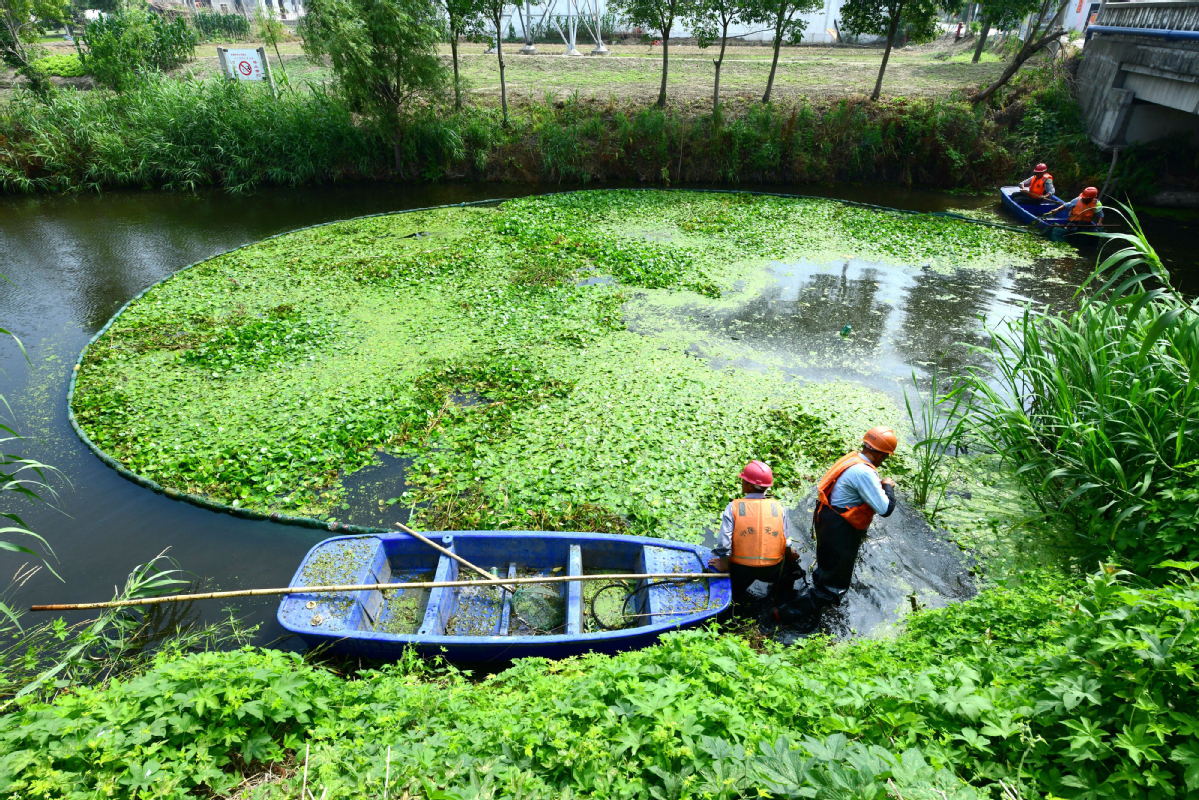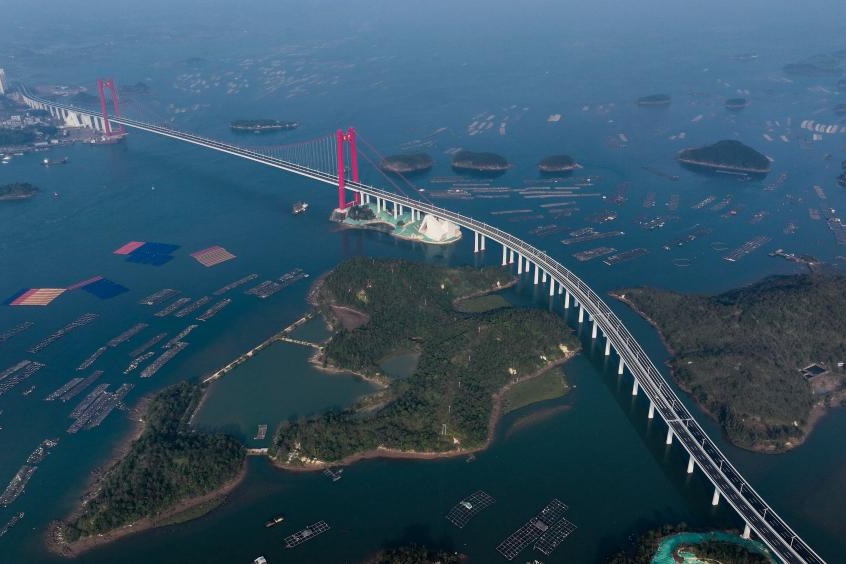China sees water body rejuvenation thanks to river chiefs


Thanks to a system of appointing officials as river chiefs to coordinate water body conservation efforts, China has seen historical changes to the water environment with many rivers and lakes rejuvenated, said Li Guoying, minister of water resources.
Li made the remarks at a news conference on Tuesday organized by the Publicity Department of the Central Committee of the Communist Party of China.
"The river chief system is a major reform measure that Xi Jinping, general secretary of the CPC Central Committee, has planned, made decisions on and promoted personally," Li said.
Significant achievements have been made since the central authorities issued a guideline in December 2016, which asked that the system to be established nationwide by the end of 2018, Li said.
At the national level, he said, a cross-ministry joint conference mechanism has been established to promote the river chief system, with a leading official of the State Council as convener.
Similar coordination mechanisms have also been set up in the country's seven major river basins, which have helped beef up the coordination of actions for river conservation in different provincial-level regions, he added.
To date, a total of 300,000 river chiefs have been appointed across the country in a four-tier system from the provincial level to township level, he said, adding there are now 900,000 river chiefs in villages.
"Currently, we have people to manage and care for every river and lake in the country," he stressed.
Thanks to a series of tailored and differentiated measures under the river chief system, there have been historical changes to many rivers and lakes across the country, he said.
"More and more river basins have been rejuvenated," he noted.
China first appointed local government officials as river chiefs in 2007 in Taihu Lake, Jiangsu province, as local authorities strived to address pollution woes after a blue algae outbreak.
The practice was later introduced to some regions with rich water resources to help ensure strong enforcement of environmental policies and enhanced coordination of government bodies.
River chiefs' responsibilities include water resource protection, pollution prevention and control, and ecological restoration.
Their job performance will be assessed and they will be held accountable if environmental damage occurs in the water bodies they oversee.
Heads of provincial-level areas will be general chiefs responsible for all rivers in their region.
- China expands elderly care initiatives amid population ageing
- Beijing Court to handle more international commercial cases
- Explore the ancient hot springs in Guizhou
- Green peafowls: a symbol of China's cultural heritage and artistic inspiration
- China unveils global ocean prediction AI model
- Guangzhou to open 10 new metro, intercity rail lines in 2025




































